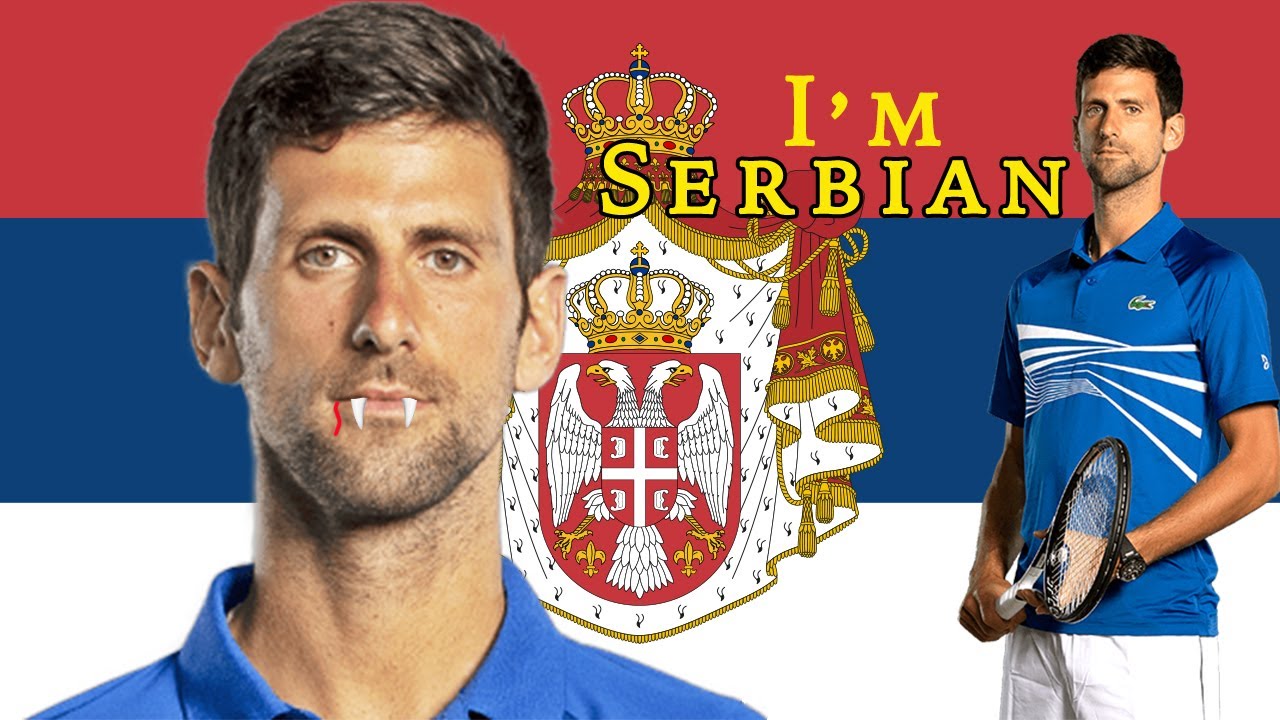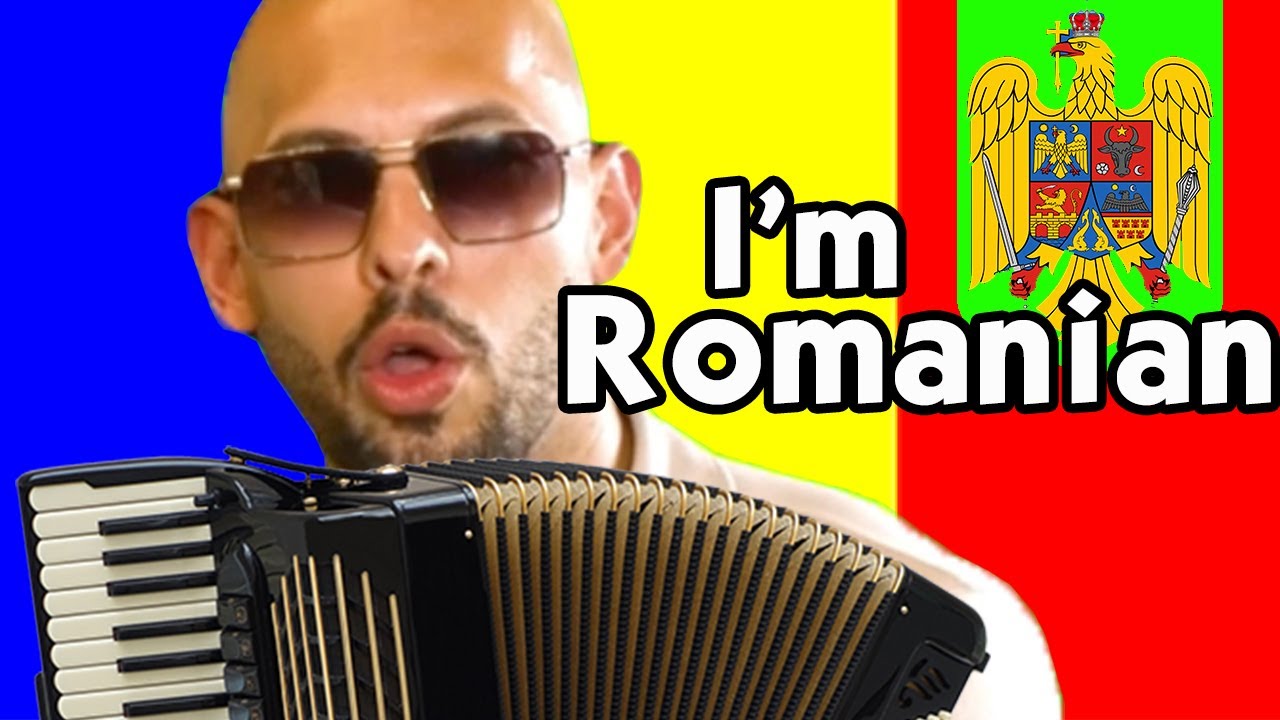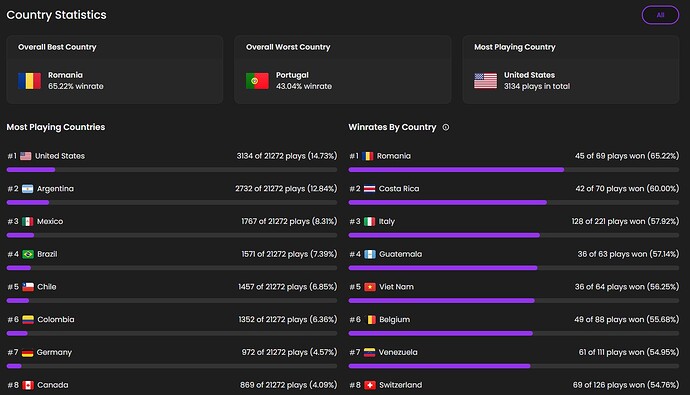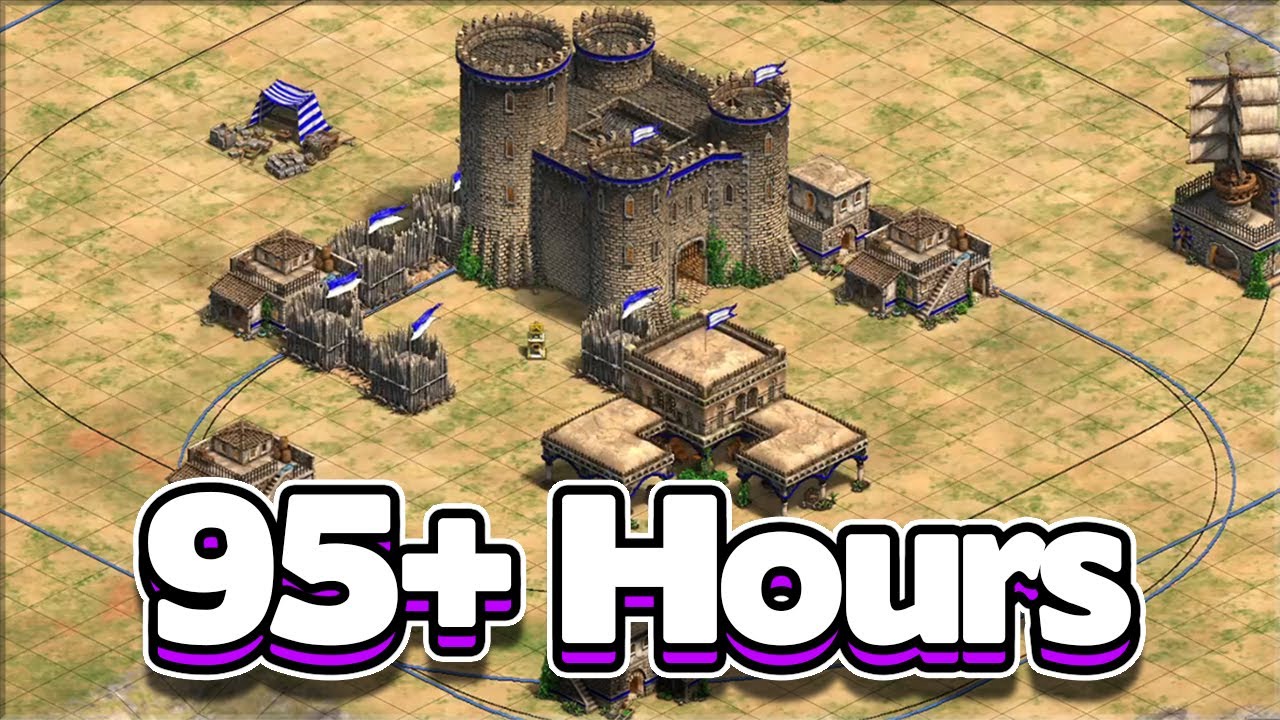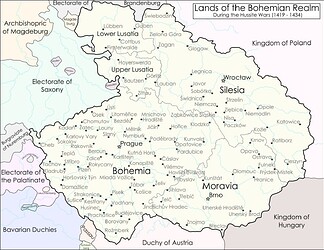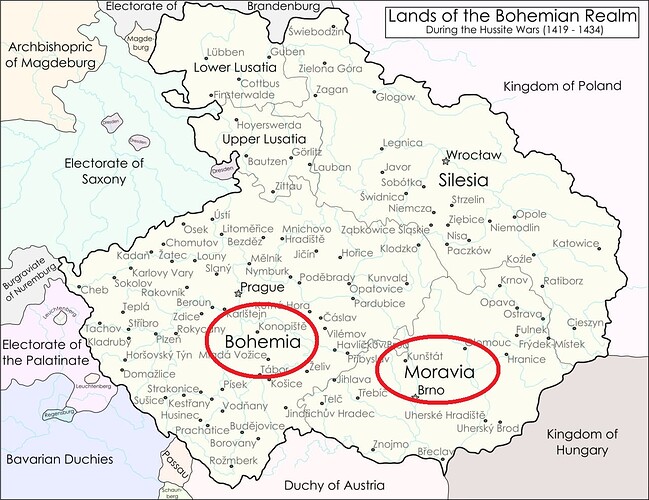What about Sclavenians?
There are a lot of good stories to tell from the Balkans.
And the best past is 95% of AoE2’s audience doesn’t know about these.
I made a DLC suggestion about such stories here:
The Vlachs/Romanians of course don’t need a new campaign only a Dracula rework, but that’s a good thing because it leaves the spot open for 1 more civ.
- The Serbs have clearly Stefan Dušan. His reign marked the peak of Serbian power in the Middle Ages, during which the Serbian Empire reached its territorial zenith and its influence spread across much of the Balkan Peninsula. His legacy is defined by his military achievements, his legislative reforms, and his efforts to elevate Serbia to an imperial power.
Born in 1308, Dušan was the son of King Uroš II of Serbia and a Byzantine princess. His early life was shaped by both his royal lineage and the political instability that characterized his father’s reign. Uroš II was not a strong ruler, and under his leadership, Serbia faced challenges from both internal factions and external powers, including the Byzantine Empire. Dušan’s early years were marked by his involvement in several military campaigns, which set the stage for his future ambitions. At the age of 23, he led a successful rebellion against his father, seizing the throne in 1331 after Uroš II’s abdication. This event marked the beginning of Dušan’s ascent to power, which would dramatically transform Serbia’s position in the region.
As king, Dušan initially focused on stabilizing his kingdom and expanding its borders. He engaged in a series of military campaigns to assert Serbian dominance over neighboring regions, including parts of modern-day Macedonia, Greece, and Albania. His military successes were significant, as he was able to successfully challenge both the Byzantine Empire and the Bulgarian Tsardom, two major powers in the Balkans at the time. Dušan’s most notable victory came in 1344 when he defeated the Byzantine Empire at the Battle of Fere (modern-day Varna), which resulted in his territorial gains in Thessalonica and parts of the Greek peninsula. This victory, coupled with his subsequent expansion into Epirus, Albania, and Macedonia, allowed Dušan to lay the foundations of the Serbian Empire.
One of the most pivotal moments of Dušan’s reign came in 1346, when he proclaimed himself Emperor of the Serbs and Greeks. This self-coronation in Skopje marked his ambition to establish a Serbian Empire that would rival the Byzantine Empire, and his crowning was a direct challenge to Byzantine sovereignty. Dušan sought to not only expand his territorial holdings but also to claim imperial legitimacy, viewing himself as a defender of Orthodox Christianity and a legitimate heir to the Byzantine imperial tradition.
Dušan’s reign was also characterized by a number of significant administrative and legal reforms. One of his most enduring legacies was the Dušan’s Code (or Law Code), introduced in 1349 and revised in 1354. The code was an important legal document that sought to standardize laws across the empire, bringing much-needed order and organization to the diverse territories under his control. Dušan’s Code was influenced by Byzantine law but also contained elements unique to Serbian customs and governance. The code addressed a range of issues, including feudal relationships, inheritance, and the role of the Church in governance. It is considered one of the most important medieval legal texts in the Balkans and a significant contribution to Serbian and Slavic legal traditions.
Dušan’s relationship with his son, Stefan Uroš V, is a complex one. Although Dušan intended for his son to succeed him, the young Uroš struggled to live up to his father’s expectations and failed to maintain the same level of authority after Dušan’s death. The empire that Dušan had built was short-lived, as internal divisions and external threats weakened it rapidly after his death in 1355. The Ottoman Empire soon began to emerge as the dominant power in the Balkans, and the Serbian Empire ultimately fell into decline.
He is so important he got a cameo in a Rucka Rucka Ali parody.
Not to be outdone by Serbia, here’s Rucka Rucka Ali parody about the Vlachs.
-
Mehmed the conqueror which I’m sure everyone knows.
-
And since Vlachs/Romanians already have their campaign, the last one could be Matthias Corvinus, his reign, which lasted from 1458 until his death in 1490, is remembered for transforming Hungary into one of the most powerful states in Central Europe, and his influence extended beyond the borders of his kingdom. Matthias was a skillful ruler and military strategist, known not only for his political acumen but also for his cultural and intellectual achievements. He is often seen as a key figure in the Renaissance expansion into Eastern Europe.
Son of John Hunyadi, a renowned military leader of Vlach origin, Matthias came from a family with deep roots in the political and military life of the region. The Hunyadi family, though not belonging to Hungary’s old aristocracy, rose to prominence through military and political achievements. His father had been a prominent figure in the defense against the Ottoman Empire and had gained significant political power. However, upon his death in 1456, Matthias faced a fractured political landscape, with numerous noble factions vying for power. Despite being only 15 years old at the time, Matthias was elected king of Hungary in 1458, largely due to his father’s legacy and the political maneuvering of his supporters.
As king, Matthias Corvinus sought to consolidate royal authority, a task that was far from easy in a kingdom where the nobility wielded considerable power. One of his most significant accomplishments was the establishment of a professional army, known as the Black Army, which was one of the most feared and well-equipped military forces in Europe at the time. This allowed him to exert greater control over his kingdom and maintain a strong defense against both internal and external threats.
Matthias was also a significant patron of the arts and sciences. He brought the Italian Renaissance to Hungary, attracting scholars, artists, and humanists to his court. His library, the Bibliotheca Corviniana, was one of the largest and most important collections of manuscripts in Europe. His court became a cultural center, and his efforts helped Hungary become a significant player in the intellectual currents of the Renaissance. This cultural patronage reflected Matthias’s broader vision for Hungary, one that sought to elevate the kingdom to the level of other great European powers.
Though Matthias’s reign was marked by significant success, it was not without challenges. After his death in 1490, Hungary experienced a period of instability, as his successors were not able to maintain the centralized power he had established. His death led to the division of Hungary into factions, and it was ultimately weakened by the looming threat of Ottoman expansion in the 16th century. Despite this, Matthias Corvinus left behind a legacy that is remembered for its military reforms, cultural contributions, and efforts to elevate Hungary to a position of power in Europe. His rule is still regarded as a golden age in Hungarian history, and he remains one of the most celebrated figures in the country’s past.
- And if for any reason the devs decide in favor of a Vlach campaign, there’s Stephen the Great, Dracula’s cousin from Moldavia. His reign, which lasted from 1457 until his death in 1504, is regarded as a golden age for Moldavia, a period during which the principality experienced significant military victories, territorial stability, and cultural growth. His skill as a military commander, his strong religious devotion, and his commitment to defending his country’s independence earned him both local and international recognition, with his legacy being so profound that he was even given the title “the Holy” during his lifetime.
Stephen was the son of Bogdan II from Dracula’s campaign (who was his uncle not cousin as the campaign says), after his father’s assassination in 1447, Stephen and his family were exiled, returning to Moldavia in 1457 to claim his rightful inheritance with military support from Vlad the Impaler. Stephen’s reign was defined by his military achievements. He is most famous for his numerous victories against a wide array of enemies, including the Hungarians, the Poles, the Ottomans, and the Tatars. His tactical genius and deep understanding of military strategy allowed Moldavia to survive and even thrive amid threats from neighboring powers.
Perhaps one of his most famous victories came in 1475, at the Battle of Vaslui, where he decisively defeated the much larger forces of the Ottoman Empire, who had recently conquered Constantinople. This victory earned Stephen the admiration of the entire Christian world and was celebrated as one of the most important military achievements in the history of Eastern Europe. The Pope called him “Champion of Christ” despite being Orthodox.
Other notable battles solidified his reputation as a great warrior. In the Battle of Baia in 1467, Stephen defeated Matthias Corvinus, the King of Hungary. Despite being heavily outnumbered, Stephen achieved a crucial victory, ensuring the continued independence of Moldavia and securing his reign. Similarly, in the Battle of Codrii Cosminului in 1497, Stephen defeated the forces of John Albert of Poland, who sought to annex Moldavia. These battles, among others, exemplified Stephen’s resilience and military skill, as well as his ability to defend his people from larger, more powerful neighboring states.
Stephen’s military and political success were also rooted in his strong religious convictions. He was deeply devoted to the Christian faith, and his commitment to the Church played an essential role in his governance. His reign saw the construction of numerous churches and monasteries, many of which became architectural masterpieces, and some of which are now UNESCO World Heritage Sites, featuring beautiful frescoes that narrate biblical stories and reflect his personal faith.
Stephen’s piety and his efforts to strengthen Moldavia’s religious institutions earned him the title of the Holy, a remarkable distinction bestowed upon him during his lifetime. This title, though unusual for a ruler in the Christian world, signified not only his personal holiness but also his dedication to the defense of Christianity in Eastern Europe.
Bohemia not having central europe architecture and Poles with orthodox monastery are the fault of the devs. Not of the community for pointing it out. It’s not like there is some heated historical debate topic whether Bohemia was part of HRE or Poland is Catholic. This is some quite basic stuff that the devs simply did not know.
Indians are multiple ethnicities just like Slavs are multiple ethnicities. In the same way Germanics aren’t a single ethnicity. I mean sure Putin makes his “we’re all the same” BS speech nowdays but everyone who knows a bit of Eastern European history and is not Z knows that’s utter BS.
From that list: Valachia, Moldova, Transylvania and Albania aren’t Slavic. So they aren’t represented by the Slavs civ. Valachia, Moldova, Transylvania can easily be made into 1 umbrella Vlach/Romanians civ and I don’t think anyone including the Vlach/Romanians would have a problem with that. They actually may prefer that over having only 1 like Wallachia or Moldavia in the game.
At the end of the day, it’s just a game, and there are more important things to focus on than representation in a game who hardly affects your life because it’s just a game.
But this is not calling a Croat a Serb or a Serb a Croat. You could make the argument that the current Slavs placeholder are doing exactly that, calling a Croat a Serb or a Serb a Croat.
I can understand being upset with wrong representation, that one I get it (i.e. Dracula being played by Turk, Slavic and Magyar civs) since it’s not a matter of added/not added but what was added was incorrect, but whether you are added as an umbrella be it Slavs or Slavonians this is not wrong representation just putting you in an umbrella, like playing with Humans in a space game or Europeans in a continental game. You don’t have that civ? so what? how is not going to have that civ just like others don’t get to have that civ going to affect your life?
hardly affects your life and their lack of existence doesn’t mean anything. It doesn’t make things more or less true because they are or aren’t in a video game. Doesn’t mean anything in the grand scheme of things. It’s just a game, whether they are or aren’t in the game, it’s just a game. There are more important things to do.
But yes just Vlachs/Romanians and Serbs are fine.
While I completely agree with you, people can get real mad over really irrelevant stuff lol.
Bohemia should 100% have central europe architecture, I agree with you there wholeheartedly, but to be honest, I don’t find the Pole’s monastery that massive of an issue. Given how the game works with monasteries just going off the regional architecture pack, I can live with it for the sake of game mechanics. If we want to get really granular, Lith should have a pagan shrine (or maybe a catholic church) instead of orthodox, Cumans should have a tengriist shrine instead of a mosque, etc, there’s plenty of examples where the building doesn’t fit the civ’s IRL faith but there are so many other things that are more important, and knowing how ancient the code is trying to make the monastery use a different architecture than the rest of the buildings would probably be a costly nightmare to implement and just isn’t worth it.
If there are code limitations for Polish church I understand it. But Bohemia doesn’t have such limitation and should have been Central Europe Architecture since day 1.
Yeah, I mean, at the end of the day, how is not going to have that civ just like others don’t get to have that civ going to affect your life? Liechtenstein doesn’t have their own civ, of course, they can play Teutons, which is also an umbrella for them. And share that umbrella with the Germans and Austrians, so why don’t Croats, Bosniaks and Serbs want to do the same thing? it’s not wrong representation, where I get being upset. The Albanians don’t have their civ either. You don’t have that civ? so what? how is not going to have that civ just like others don’t get to have that civ going to affect your life? your civ is not in the game, you play as these other civs, so what? you’re not the only civ to have done so. You play another civ, other civs.
It’s just a video game. It doesn’t depend everything upon it. Try other civs.
I agree with that part. But I don’t think this is the full story. It’s always nice to play with your own civ. And the devs know this, this is why they added the Vietnamese and Koreans. And those are the cases when that exact reason was stated by the devs, possibly other civs were added because it would boost sales in the country they would be added to.
If you’re American, British, French, German or Russian you don’t know this since 90% of games have your country as a playable faction. But for the “little guys” it means a lot when their own nation is playable.
And the sales departments know this.
That being said I found these player rate/country stats:
I’m not sure if it’s overall from the launch of the game all the way to 2025 or merely the last patch and so on.
Romanians seem to be surprisingly good players
I’m not familiar with the competitive scence, but I remember this epic 95+ hours game:
Andre_2i was Romanian.
I was able to find Romania on position 35/107 in terms of countries with the highest number of players.
This is 2 places above Vietnam, that the devs said they added because of the high number of Vietnamese players. Vietnam has a population of 100.000.000 people and Romania of 20.000.000 players, so there are 5 times as many Vietnamese in the world yet more Romanian players than Vietnamese.
While Serbia is ranked 47 with 6.600.000 people. Overall, I’d say there’s a decent amount of AoE2 players in these countries.
What I find very interesting is that the top countries are: USA, Argentina, Mexico, Brazil, Chile, Colombia, Canada, Peru, Australia, Uruguay, Ecuador, Venezuela.
I’m sure there is a story I don’t know here why all these American countries are so in love with AoE2. This is probably why revolutions were added in AoE3 since they can’t be represented in AoE2.
Vietnam was added in AOE1, not 2, for this reason. And both Koreans in AOE2 and Lac Viet in AOE1 failed to hit the target, as they didnt sell that well in both countries.
What I see the most here in the forums is europeans trying to prove that every little town in in Europe is worth a civ. At the same time, the rest of us want a diversity of civs from everywhere but Europe, as it already has too much, no matter if those possible new civs would be from our past.
It’s not like Moravia was initially orthodox and was even involved in the spreading of slavic Cyrillic script, or that the Lithuania and later the PLC controlled ruled over orthodox lands which later even led to church reforms, uprisings and separations. There’s no clear answer here, the answer is both fit, but you choosing a side clearly shows you’re biased, not Putin.
Indians are multiple ethnicities just like Slavs are multiple ethnicities. In the same way Germanics aren’t a single ethnicity. I mean sure Putin makes his “we’re all the same” BS speech nowdays but everyone who knows a bit of Eastern European history and is not Z knows that’s utter BS.
If you have a civ named “Slavs” in the game, you already represent near the entire eastern European branch of the language tree. Your example even shows this, there’s no “germani” civs precisely because there are teutons, goths etc. and now see the difference between Hindi and Bengali:
Well, I am Brazilian and I can say that in the case of my country, the success of aoe2 is not due to some kind of desire for representation. Brazil is a country with a mix of Europeans (mostly Portuguese), Africans (mostly from present-day Angola and Nigeria) and natives (mostly Tupi). The latter are a minority today, and as far as we know they did not build any kingdoms in the medieval period, and the Portuguese are already in the game; only the Africans remain. However, in addition to the majority not knowing about their ethnic origins (and many, like me, don’t care much about it), there is also no strong feeling of pride in their heritage, similar to that of the countries of the “Old World”. There is a certain recognition and attachment to some European, African and indigenous traditions, but I would say that this is something localized not general, and Brazil is a huge country.
(I’ve never played AoE3, so this may not apply to it. I suppose AoE3 is easier to “relate with” because Brazil already exists as a nation there.)
The success of AoE2 here is due to economic circumstances. When AoE2 (AoK and later TC) was released, very few people in the country had computers. However, it was a cheap game and worked on any PC, so much so that even today, despite the economic situation being much better, most people still don’t have a PC that supports DE and continue to play the TC version with Userpatch.
Yes, it’s clearly every little town that is advocating for here. /sarcasm off
He’s speaking of Bohemia, because the civ is called Bohemia, and you reply with Moravia? There is a clear answer here, and a damn obvious one lol
Civilization =/= ethnicity =/= language. We can talk about any of these but you shouldn’t mix them up. I think the langauges map only proves Player870’s point not yours.
Show me the obvious, because it isn’t obvious to me:
Civilization =/= ethnicity =/= language. We can talk about any of these but you shouldn’t mix them up. I think the langauges map only proves Player870’s point not yours.
In the case of slavs you can fairly easy make the equality here. All slavs share roughly the same origin which hasn’t been up to dispute by historian until recently. It would also fit into the timeframe of goths, celts, romans:
The Slavs, an eastern branch of the Indo-European family, were known to the Roman and Greek writers of the 1st and 2d centuries A.D. under the name of Venedi as inhabiting the region beyond the Vistula… In the course of the early centuries of our era the Slavs expanded in all directions, and by the 6th century, when they were known to Gothic and Byzantine writers as Sclaveni, they were apparently already separated into three main divisions…
— An Encyclopedia of World History, William L. Langer, Harvard University, 1940 & 194
All Latins (Portuguese, Spanish, French, Italian, Romanian) share roughly the same origin. This does not mean they are the same.
the obvious
Nope. Because both lands are listed under the “Bohemian realm” in the same picture, also called “Lands of the Bohemian Crown” which Moravia was a part of.
All Latins (Portuguese, Spanish, French, Italian, Romanian) share roughly the same origin. This does not mean they are the same.
But in the game they are, during their unified period, represented by one latin civ - romans. Or are you arguing we need the Gauls, the Germani etc too - because clearly the Germani and the Teutons and even the Allemani could be separate civilizations, because they are “not the same”?
Note that even the history section of aoe mentions the slavs as a unified civilization:
Mass fifth century migrations caused by the Hunnic invasions left northeastern Europe an area open for settlement and, starting circa 500 AD, the Slavs became the region’s dominant civilization. Although archaeological evidence indicates that the Slavs had already settled Europe in prior centuries, possibly in the areas of present-day Ukraine and Belarus, the historical record first makes mention of them through Byzantine writings describing the large numbers of Slavs massing near their borders. Upon settling down, the Slavs established several competing states throughout Eastern Europe, falling into either the Byzantine or Holy Roman spheres of influence
And if I may add as an Italian, I don’t give a damn about dividing Italians any further; even if the subject does come up. But then no one talks about dividing the Spanish & co. for some strange reason just Italy.
Because italians are genoese in game and venice has enough importance to become its own civi eg.latin empire.
As a Spanish, It would make more sense to divide it between Castilians and Aragonese. During the period of the game Aragon was as different from Castile as Portugal is, and they had a distinct culture and were more focus on the commerce and a Mediterranean Empire. The two kingdoms were in fact not fully merged till 1700.
How would a new Venetian civ be different from the current Italian civ? Historically Venice was a naval power that relied on mercanaries for land combat. That’s basically the Italian civ. I think making a few minor changes to the Italian civ to show their Venetian heritage (like adding the galleass) would be more than enough.
The cultural differences between Castillians and Aragonese were not even close to the differences between other cultures lumped together in this game, like the slavs or basically most civs outside Europe.
The only new Iberian civ I would add is the Andalusi, altough it would be more of Saracen split.
I personally always saw the Sicilian civ as a good umbrella substitute to Aragonese (Mediterranean, naval, and possession of Sicily in the 15th century).
Sicilians are made more to represent norman adventurers final settlement. In the same way, I wouldn’t consider Burgundy a replacement of the Frisians/Dutch.
Same way franks are different from burgundians.you spice up the tt with new things.This is how every new civi works in aoe2
Eg. Give a uu ship that is an upgrade to a current ship like how poles and lithuanians get the winged hussar.
Dutch have enough things to become its own civi.Burgundians being a stand in is just bad.
